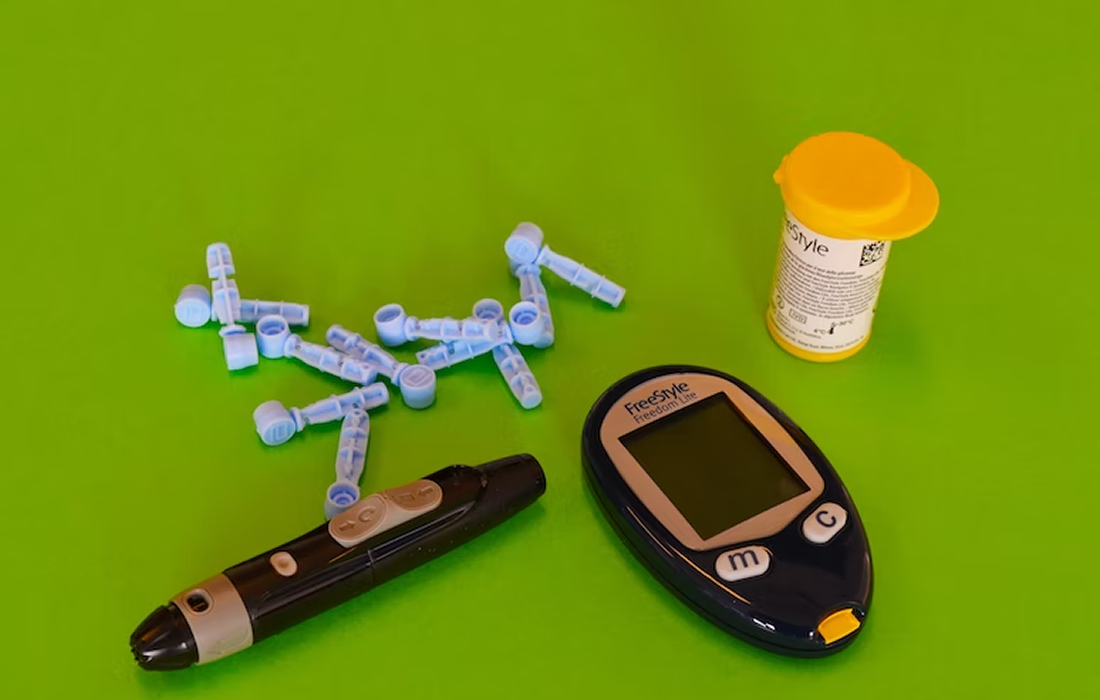Regenerative Medicine News and General Information
Type 2 Diabetes Risk: New Test
Analyzing changes to DNA in the blood can improve the ability to predict a person’s risk of developing type 2 diabetes within a decade.
Scientists looked at the influence of these changes — known as DNA methylation — alongside other risk factors in almost 15,000 people to predict the likelihood of developing the condition years in advance of any symptoms developing.
The findings could lead to preventative measures being put in place earlier, reducing the economic and health burden caused by type 2 diabetes.
Methylation is a chemical process in the body in which a small molecule called a methyl group is added to DNA.
Current risk prediction tools for type 2 diabetes use information such as age, sex, BMI and family history of the disease.
Researchers from the University of Edinburgh found that the inclusion of DNA methylation data alongside these risk factors provided a more accurate prediction.
The scientists used their results to estimate the predictive performance using a hypothetical screening scenario of 10,000 people, where one in three individuals develop type 2 diabetes over a 10-year period.
The model that used DNA methylation correctly classed an extra 449 individuals compared with traditional risk factors alone.
The addition or removal of these methyl groups can affect how some molecules act in the body. These methylation patterns can help to track aging processes and development of disease.
Data came from 14,613 volunteers in the Generation Scotland study — a large study designed to help scientists investigate the causes of disease, understand the country’s healthcare priorities, and inform future medical treatments and health policies.
The team also repeated the analyses in 1,451 individuals from a study based in Germany to ensure their findings could be replicated in people from different backgrounds.
Type 2 diabetes is a serious condition where the insulin a pancreas makes cannot work properly, or a pancreas cannot make enough insulin. This can lead to high blood sugar levels and, in turn, a range of health issues such as heart diseases and stroke, nerve damage and foot problems.
More than 4.9 million people live with diabetes in the UK, with 90 per cent of those with type 2.
Yipeng Cheng, a PhD student from the University of Edinburgh’s Centre for Genomic and Experimental Medicine, said: “It is promising that our findings were observed in the Scottish and German studies with both showing an improvement in prediction above and beyond commonly used risk factors. Delaying onset is important as diabetes is a risk factor for other common diseases, including dementias.”
Sources:
Yipeng Cheng, Danni A. Gadd, Christian Gieger, Karla Monterrubio-Gómez, Yufei Zhang, Imrich Berta, Michael J. Stam, Natalia Szlachetka, Evgenii Lobzaev, Nicola Wrobel, Lee Murphy, Archie Campbell, Cliff Nangle, Rosie M. Walker, Chloe Fawns-Ritchie, Annette Peters, Wolfgang Rathmann, David J. Porteous, Kathryn L. Evans, Andrew M. McIntosh, Timothy I. Cannings, Melanie Waldenberger, Andrea Ganna, Daniel L. McCartney, Catalina A. Vallejos, Riccardo E. Marioni. Development and validation of DNA methylation scores in two European cohorts augment 10-year risk prediction of type 2 diabetes. Nature Aging, 2023; DOI: 10.1038/s43587-023-00391-4
University of Edinburgh. (2023, April 6). New test could help identify type 2 diabetes risk. ScienceDaily. Retrieved April 6, 2023 from www.sciencedaily.com/releases/2023/04/230406114014.htm

